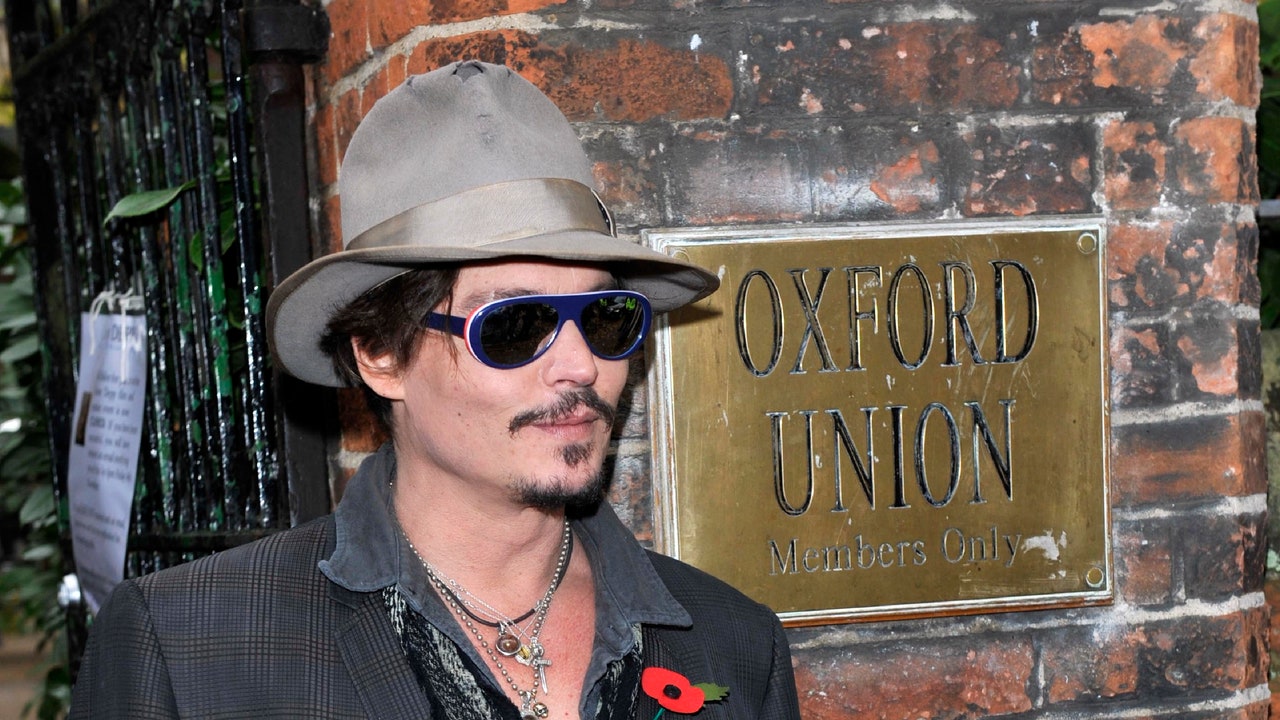Johnny Depp has portrayed a lot of iconic real life figures: crime kingpin Whitey Bulger, director Ed Wood, and boundary-pushing journalist Hunter S.
Johnny Depp has portrayed a lot of iconic real life figures: crime kingpin Whitey Bulger, director Ed Wood, and boundary-pushing journalist Hunter S. Thompson, to name just a few. But in a recent interview, he might remind you more of lauded celebrity-turned-recluse Howard Hughes (a role that went to Depp’s Who’s Eating Gilbert Grape co-star Leonardo DiCaprio, one should note), a man so burdened by fame that he’s trapped at home in a situation he admits “can’t be healthy.”
The revelation comes in a Sunday Times interview with journalist Jonathan Dean, who says he spoke with the actor over “a broad range of drinks, starting with Aperol, and some roll-ups.” Depp, who in 1997 told Vanity Fair, “Some people can drink—you know, a few whiskeys or vodkas. But I just keep going,” also provided Dean with a glass of “his own-brand rum,” which Dean says has a “nice drop, deep flavour.”
Free-flowing liquor has long been a standby of an interview with Johnny Depp; for reference, see Vanity Fair’s 2009 interview with the actor, in which reporter Douglas Brinkley traveled to Depp’s private island in the Bahamas. Now 62, the actor—who in 2017 learned that his finances were in shocking disarray—is doing interviews in the comparatively pedestrian environs of “a gorgeous old house in the bustling heart of Soho, London.”
But the rental is also a cell, Depp says, arguing that his fame prevents him from leaving the place. “I’ve tried hats. Or I can grow a beard. But there is never any way to hide, and I just feel uncomfortable causing this weird form of attention I do, because I’m really shy.”
He seems aware that his complaints seem tiresome from the outside, noting that “Fame is an occupational hazard — but if I spout off about how upset I am, people will say, ‘Sweetheart, take a job pulling trash bags.’” Another option, one supposes, is to move somewhere less attuned to celebrity—just ask Julia Roberts or Dave Chappelle, but it appears that public attention is just one of his complaints.
Also a source of frustration is reality television, in which, as Depp puts it, “some fucking guy from fucking Podunk, Iowa, can get his own show.” Depp, who was born in Owensboro, Kentucky—and who was cast in A Nightmare on Elm Street just a few months after his arrival in Los Angeles—also remains disappointed by the public perception of his brief and allegation-laden marriage with Aquaman actor Amber Heard, which included two Depp-filed defamation suits (one which he lost, and a second that he won). “Everyone was saying, ‘It’ll go away!’” Depp tells Dean of his ex-wife’s allegations of abuse (which, to be clear, he denies).
“But I can’t trust that. What will go away? The fiction pawned around the fucking globe? No, it won’t. If I don’t try to represent the truth, it will be like I’ve actually committed the acts I am accused of.”
Though public support was loudly in Depp’s favor, as was well-depicted in news coverage and documentaries about the case, Depp still believes that he “was like a crash test dummy for MeToo,” and that the controversy revealed “people, and I’m thinking of three, who did me dirty” as the couple’s divorce—and its after-effects— unfolded in public. “I sponged it, took it all in,” Depp says. “And so I wanted from the hundreds of people I’ve met in that industry to see who was playing it ‘Better go woke!’”
That upset might be one of the reasons Depp wishes he could leave the industry entirely. “If I actually had the chance to split, I would never come back,” he tells Dean. But instead, he either works (his latest film, Marc Webb’s Day Drinker, is currently in production) or stays at home. “I can be isolated and happier than a clam,” he says. “I don’t get out much. I’m stuck with my thoughts; just thinking, writing or watching weird shit on YouTube. It can’t be healthy.”

COMMENTS